
The African college of excellence in the social and human sciences
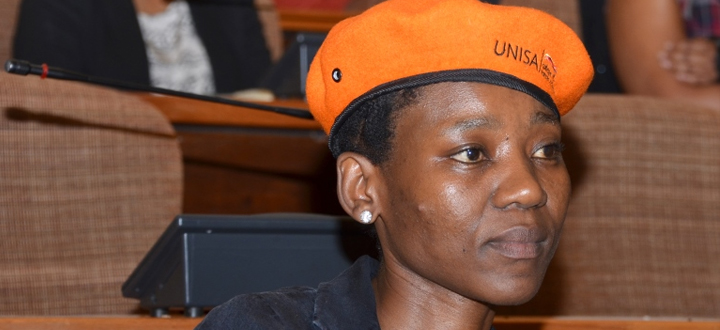 The student protest movements #Rhodesmustfall and #Feesmustfall that hijacked the media space and attracted much public’s attention since 2015, emphasised the urgent need for revisiting higher education in South Africa. Statues and fees were merely the symptoms of a deeper dissatisfaction with the status quo of higher education in South Africa, which was largely toeing colonial lines. The need to decolonise education, however, has been an ongoing conversation at Unisa for many years.
The student protest movements #Rhodesmustfall and #Feesmustfall that hijacked the media space and attracted much public’s attention since 2015, emphasised the urgent need for revisiting higher education in South Africa. Statues and fees were merely the symptoms of a deeper dissatisfaction with the status quo of higher education in South Africa, which was largely toeing colonial lines. The need to decolonise education, however, has been an ongoing conversation at Unisa for many years.
It officially started in 2011 when the Africa Decolonial Research Network (ADERN) was established in the College of Human Sciences (CHS). The network consisted of scholars who grew tired of the lack of change and academic spaces being stuck in a colonial mindset and thinking. ADERN organised (and continues to organise) readings groups, seminars and a visit to Barcelona where they attended a Summer School on Decoloniality. While ADERN has since moved out of the College, the network of decoloniality scholars within grew, and in 2014, the CHS was ready to host its first Summer School on Decoloniality, positioning itself as a pioneer of decoloniality scholarship in South Africa.
Opened by former South African president and current Unisa chancellor, Thabo Mbeki, the first summer school focused on issues of power, knowledge and identity linked to decoloniality. Mbeki emphasised that there is a great need for progressive African scholarship to ensure the kind of progressive change required on the continent. He highlighted that challenges facing the continent are violence and instability, poverty and underdevelopment, nation building, as well as national unity and social cohesion, among others. While these are not new challenges, he said the approaches conceptualised to address them have either failed or yielded very few results. Progressive scholarship is therefore required; African leaders will fail to remake this continent without it, he said.
This first summer school paved the way for future schools filled with rich thought and dialogue. In 2015, daughter of decolonial thinker and writer Frantz Fanon and president of the Frantz Fanon Foundation, Professor Mireille Fanon-Mendes France delivered the keynote address, which was nothing short of provocative. She reflected on the traits of colonialism that still haunt France to date and on how discrimination and racial profiling are systematic in a “civilized” France”.
The success of the summer school continued in 2016 and 2017 with international decolonial scholars such Dr Enrique Dussel (Professor at the Universidad Autonoma de Mexico), Professor Ramon Grosfoguel (University of California, Berkeley), Professor Nelson Maldonado-Torres (Rutgers University), and Professor CK Raju (Centre for Studies in Civilisations) as well as local scholars, Professor Sabelo Gatsheni-Ndlovu (Head: AMRI), Professor Pumla Gqola (University of Witwatersrand), Professor Tendayi Sithole (Unisa), and Professor Siphamandla Zondi (University of Pretoria).
Prof Puleng Segalo, Head of Research and Graduate Studies in the College of Human Sciences who has also been involved with summer school since its inception, says the aim of the Summer School is to create a space for scholars to engage on the topic of decoloniality and with issues of epistemological violence within the academic sphere; a form of violence which ultimately bleeds into the broader society. Furthermore, the intention is to confront the perpetual coloniality of knowledge, power, and being.
“To decolonise is to confront, challenge and reject the status quo. This came about as many academics, students, and activists felt suffocated within the various spaces they occupy and wanted to ‘speak back’. Decoloniality is about acknowledging that knowledge is produced from a body which then implies that we think, feel and act from a particular position. Knowledge is socially and historically situated and with this, one can see how the idea of universalism becomes problematic.
“Decolonisation is about where we locate ourselves. Many students felt that they could not locate themselves in the courses they are being taught and as a result felt the need to call for the decolonisation of curriculum within institutions of higher learning. The academic space has been one of the many platforms that remind us of the legacy of apartheid and colonialism.”
Professor Segalo said since hosting the first summer school in 2014, the Unisa decolonial project has started to progressively shift the center from privileging Euro-centric/Western forms of knowledge to centering and allowing space for pluriversality where multiple forms of knowing and understanding the world are offered space.
“As a result, the College has introduced an honours module on decoloniality; this module is not limited to any specific discipline as the idea was to break away from disciplinary boundaries. Furthermore, we have introduced discussion sessions live on Unisa Radio, a platform that takes the conversation outside the confines of the academic space. The number of postgraduate students using a decolonial lens as a theoretical framework has also increased as a result of many staff members having attended the summer school and other related decolonial seminars and gaining a theoretical grounding that assists them to guide students through their research journeys,” said Professor Segalo.
Other outputs, she continued, included books published on decoloniality, special decoloniality journal issues, as well as having a voice in the news space. “The university, like other institutions of higher learning in South Africa, is currently going through a transformation process, and amongst others this entails having to go through re-curriculation processes where modules are reworked and this has created an opportunity of ensuring that a decolonised lens is used when new study materials are developed.
“Finally, a number of Unisa academics are increasingly invited by other institutions as speakers and contributors in their transformation processes. The College has also established The Archive Project, which aims at ensuring that local artists’ work is given space in the library. This is aimed at making audible the voices of local artists that have for a long time not deemed as ‘academic’.”
Looking ahead to the 2018 Summer School, Professor Segalo said that the College has ensured that the majority of the speakers are South African. “This shift was a conscious effort to allow space for engaging with our local experiences, and to offer a platform to our scholars who have been engaging with decolonial work. Additionally, we intend to have panel sessions with non-profit organisations who are doing decolonial work on the ground.”
Concluding, Professor Segalo emphsaised that decolonisation is not an arrival, but a historical ongoing process, which engages imperialism and persistent colonial tendencies at multiple levels. “Here at the College of Human Sciences at Unisa, we have long called for the acknowledgement of people’s agency, identity, language, history, and ethics, from their own vantage points. We will continue to call for the space to breathe.”
Publish date: 2017-09-21 00:00:00.0
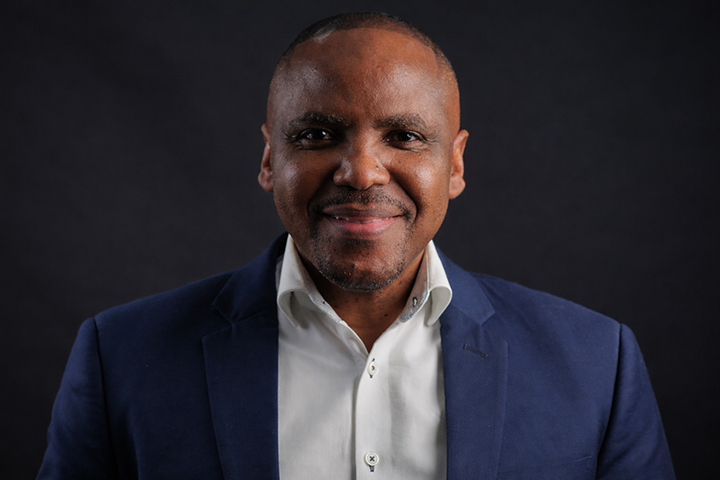 National leader in mathematics education aims to improve outcomes
National leader in mathematics education aims to improve outcomes
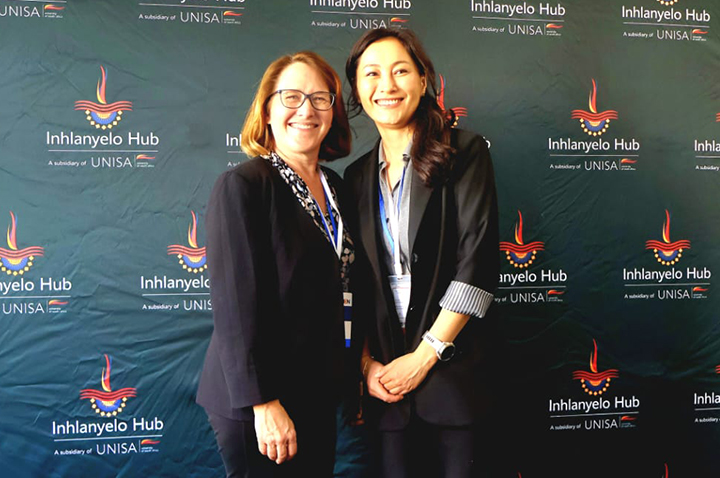 Unisa roundtable focuses on empowering SA women to lead in innovation
Unisa roundtable focuses on empowering SA women to lead in innovation
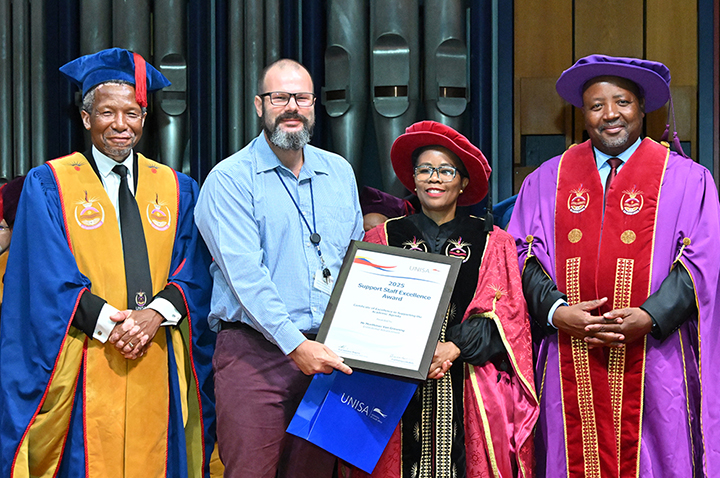 Unisan recognised for web excellence
Unisan recognised for web excellence
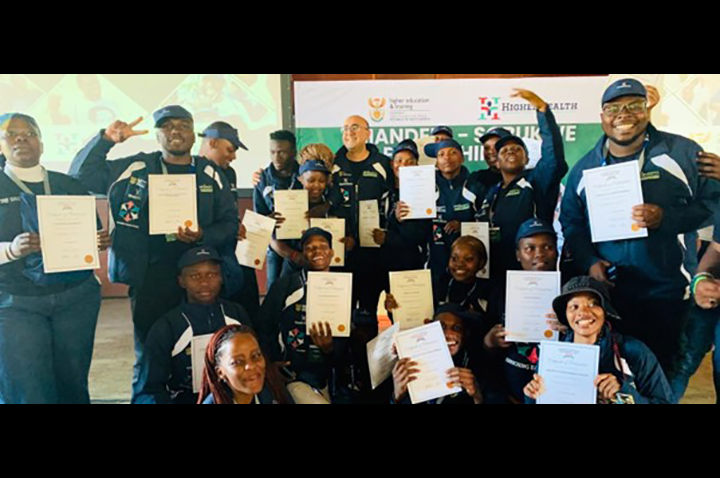 Office of the Dean of Students participates in leadership camp
Office of the Dean of Students participates in leadership camp
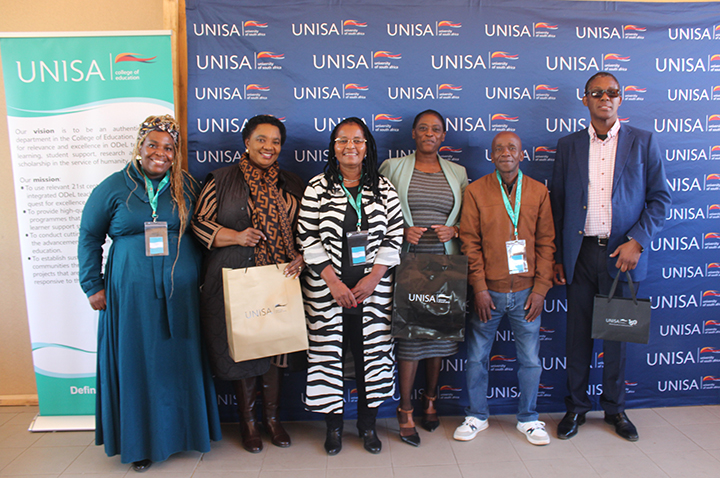 Unisa project fosters digital and pedagogical innovation in Limpopo schools
Unisa project fosters digital and pedagogical innovation in Limpopo schools